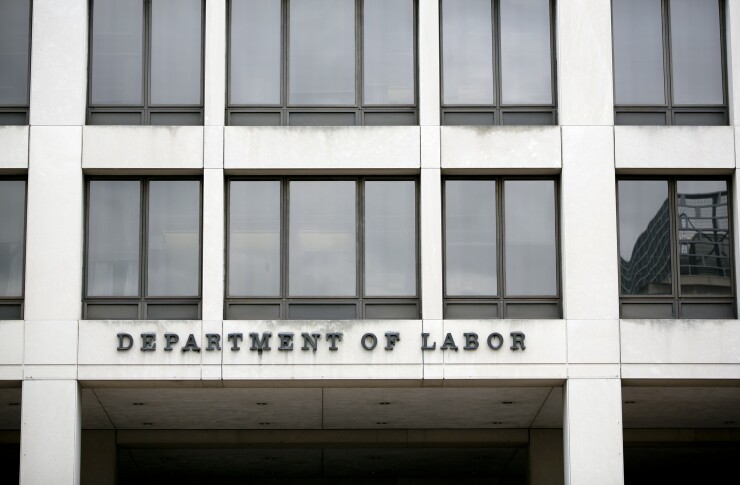The business groups that have been protesting the Department of Labor's fiduciary regulation appear to have scored a victory, with the agency signaling on Wednesday that it will push back the implementation date of the second phase of the rule by 18 months.
In a filing in a federal court in Minnesota, the DoL said that it is seeking a delay of the best interest contract exemption – a centerpiece of industry opposition to the rule – and two other prohibited transaction exemptions.
Under the revised schedule submitted to the Office of Management and Budget, those elements of the regulation would take effect July 1, 2019, rather than the original date of January 1, 2018.
The first phase of the fiduciary regulation took effect in June of this year.

The delay of the second and more controversial portion of the rule tracks closely with the appeals of industry groups such as the Financial Services Institute and the Insured Retirement Institute. In comments filed with the Labor Department, FSI appealed for a delay of the second phase until April 2019. IRI has called for the department to push back the date to January 2020.
In addition to the BIC exemption, the DoL is looking to delay an exemption relating to certain principal transactions involving benefit plans, and another involving commissions earned from the sale of life insurance products or annuities.
Supporters of the fiduciary rule, who argue that it is a needed investor protection to guard against conflicts of interest, have long feared that a Republican-led Labor Department would roll back the regulation.
"Sad beyond words," Knut Rostad, president of the Institute for the Fiduciary Standard, said of the 18-month delay.
President Trump telegraphed his skepticism about the rule early on in his administration when he issued a memo directing the DoL to reevaluate the proceeding, fueling speculation that at least some delay would be forthcoming.
"I think it was widely expected that the DoL would extend the final implementation date past Jan. 1, but 18 months is a very long time to consider changes to a rule that has been in the works for six years," says Duane Thompson, senior policy analyst at Fi360, a fiduciary training firm. "So yes, it is a surprise."
Thompson suggests that the Labor Department might use the delay to work with the SEC to codify a uniform fiduciary standard that would apply to brokers and advisors across the board, rather than the DoL's regulation that only addresses advisors working in the retirement space.
A spokesman for the DoL did not immediately respond to a request for comment on the delay.





